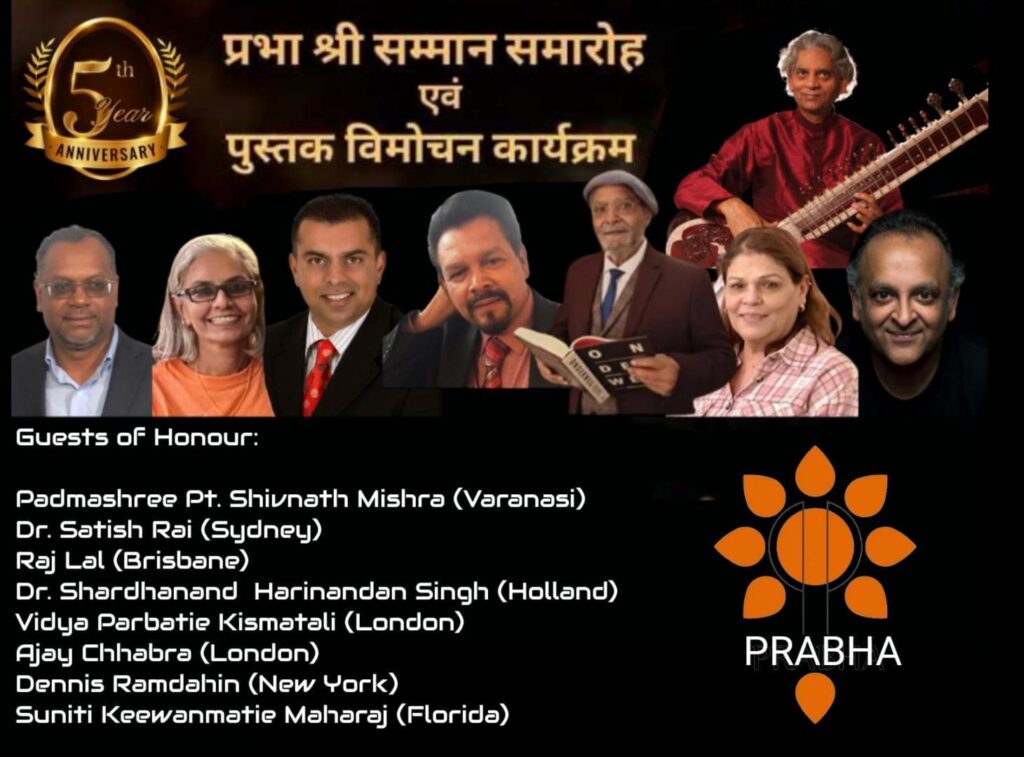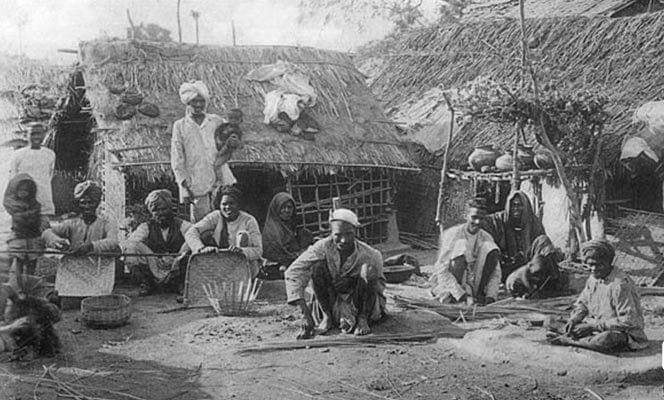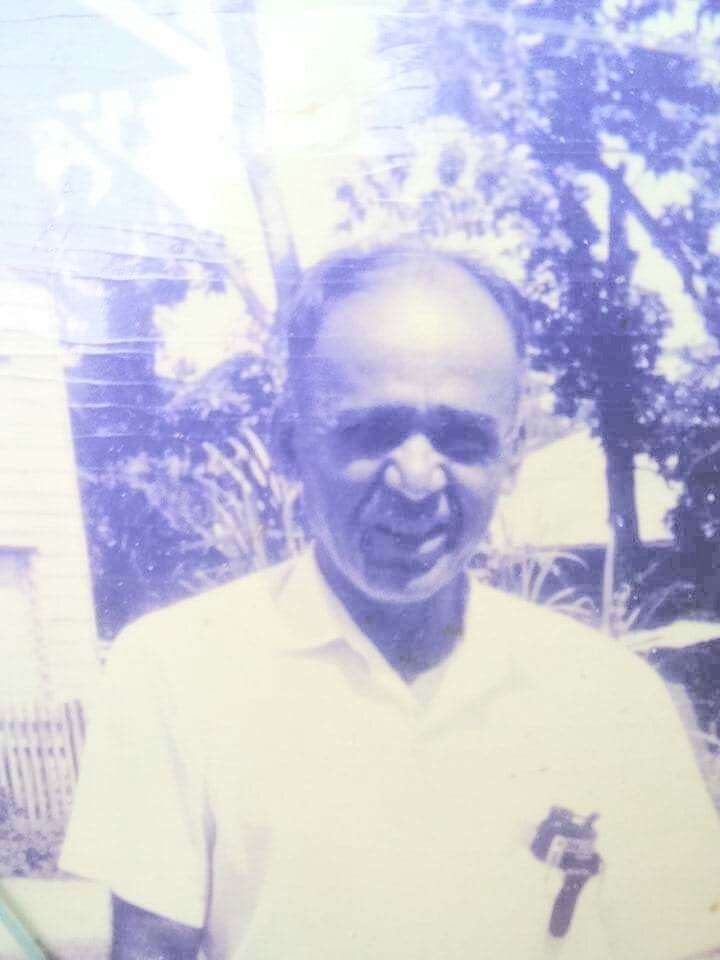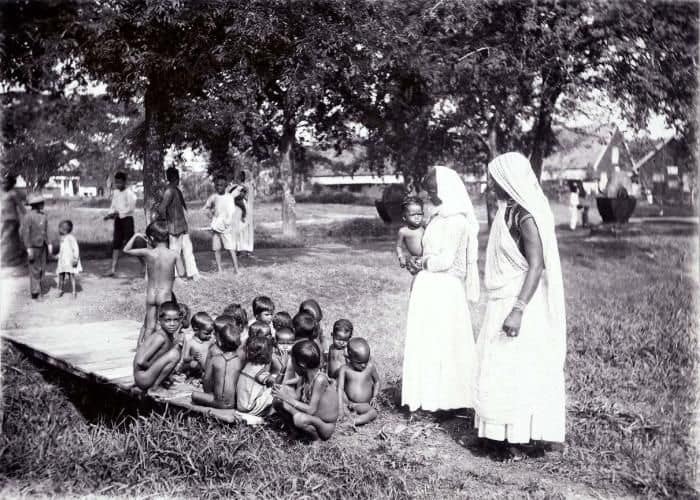An International Seminar on Girmitiya Descendants: Past, Present & Future, sponsored by the Indian Council of Social Sciences Research (ICSSR), was organised by the Centre for Indian Diaspora & Cultural Studies in collaboration with the Department of English and Modern European Languages, University of Lucknow from January 30 to February 01, 2024. The conference aimed to shed light on the overlooked narratives of indentured laborers, known as ‘Girmitya’, who were transported from various parts of India, particularly from Eastern Uttar Pradesh and Bihar, to countries such as Mauritius, Fiji, Surinam, South Africa, Trinidad, Jamaica, Guyana, et cetera, between 1836 and 1920. Initially lured by the promise of a ‘Dreamland’ filled with luxury and opportunity, these laborers faced harsh treatment akin to cattle during their journey and found themselves struggling to survive in foreign lands. Hence, the seminar aimed to delve deeply into these historical injustices and recognize the role of Girmitiyas in shaping their own future and India’s global image.
The seminar’s objectives ranged from historical exploration to contemporary socio-economic and political analysis of Girmitiya Communities worldwide. It aimed to understand the factors driving Girmitiya migration, their experiences during the indenture period, and the challenges they face today. Preserving Girmitiya cultural heritage and identity, empowering the community, and exploring the aspirations of younger generations were also focal points. Additionally, discussions centered on the role of global connections and diaspora networks in shaping the future of Girmitiya descendants.

The seminar aimed to foster scholarly engagement and facilitate collaborations between academic institutions and community organizations interested in Girmitiya history and diaspora studies. It also sought to raise public awareness about the historical significance of Girmitiya migration and advocate for the recognition of their contributions to the societies they settled in.
Ultimately, it aimed to create an inclusive platform for dialogue, collaboration, and knowledgeexchange on the past, present, and future of Girmitiya communities worldwide. The conference attracted participation from various dignitaries, both nationally and internationally, along with 150 paper presenters from across India, demonstrating significant interest and engagement in the topic. In the seminar, Dr. Shardhanand Harinandan Singh proposed to resolve that indenture system should be considered as a crime against humanity because indentureship in itself is an uncouthly disguised form of slavery. The Indian indenture system is violent in nature and crime against humanity. Dr. Singh studied several treaty provisions such as the International Slavery Convention1926, the Supplementary Convention on the Abolition of Slavery, the Slave Trade and institutions and practices similar to slavery, Geneva Convention, European Convention on Human Rights, International Covenant on Civil and Political Rights, the ILO Convention, Inter-American Convention and came on the conclusion that the issue of indentured labourers should also be included in the definition of international ‘human trafficking’ and therefore be qualified as an international crime. Human trafficking is a new form of ‘modern slavery’ that comes under the criminal court vide Article 273A and was determined in the judgment of the European Court of Human Rights (ECtHR) on 26 July 2005 in the case of Siliadan vs. France, C-73316/01. Although the Arkatins (contractors) made false promises of golden paradise for a period of five years which was in reality, the reverse, that is, constant deception/ blackmailing/ manipulation, long working hours, ill-treatment, meager food, inadequate medical facilities and all kinds exploitation. There were insufficient legal rights in favour of the indentured labourers and full protection of contractors with the help of government machineries.

As per Article 2 of the ILO Convention on forced labour, no free will right was given to the indentured labours. Dr. Singh also quoted the Ph.D. of Ms. N.J. Sillers on 23 February 2017 on the subject of International Criminalisation of Human Trafficking which considers “human trafficking in the context of international criminal law”. The researcher concludes that international criminal courts assume that trafficking in human beings is a part of the offense of slavery as a crime against humanity. Article 4 of the Council of European Convention on action against trafficking in human beings is also applied to consider recruitment, transportation, transfer, harbouring or reception of persons by the threat or use of force or other forms of coercion, abduction, deception, abuse of power, abuse of position, receipt of payments, or benefits to obtain the consent of a person controlling another person for exploitation.

Exploitation includes at least the exploitation of prostitutes, or other forms of sexual exploitation, forced labour or services, slavery or practices similar to slavery, servitude or the removal of organs. Article 5 of the EU Charter provides that no one shall be held in slavery or servitude; no one shall be compelled to perform forced or compulsory labour; and human trafficking is prohibited. Article 8 of Bupo Convention provides that: no one shall be held in slavery; slavery and the slave trade in any form shall be prohibited; no one shall be kept in serfdom; no one shall be compelled to perform forced or compulsory labour. Dr. Singh mentioned in his proposal that the clauses of the Bupo Convention shall notbe interpreted as prohibiting the performance of forced labour based on a conviction to such a penalty handed down by the competent court in countries where imprisonment with hard labour may be imposed a punishment for a crime. He also mentioned some of the clauses like a person detained under a lawful order of court, any service of military nature, services in the state of emergency or disaster threatening the existence of any work that is part of regular civic duties.
The above proposal was presented in the seminar to treat indentureship as a crime against humanity, as the international court considers slavery as a crime against humanity. More than 200 delegates from across the world participating in the ICSSR sponsored International Seminar on Girmitiya Descendants: Past, Present & Future, organized by the Centre for Indian Diaspora & Cultural Studies in association with the Department of English and Modern European Languages, University of Lucknow from January 30, 2024, to February 01, 2024, welcomed the proposal submitted by Dr. Singh. Signature drive was also carried forward among the participants and it was resolved to present a memorandum in order to submit in the international court to consider indentureship as a crime against humanity. The seminar served as a pivotal platform for exploring the intricate history of the Girmitiya diaspora, marking a significant milestone in shedding light on their experiences. It provided an opportunity for fruitful discussions and exchanges of ideas surrounding Girmitiya Studies. Following the seminar, a series of resolutions were adopted.

To establish Global Girmit Research Centre
To declare Indian indentured labour a crime against humanity by the UNESCO;
To support the digitization of the details of Girmitiyas across the world in collaboration with the Global Girmitiya Association at the level of State Government of Uttar Pradesh.
To assist the Girmitiya descendants to meet their Indian relatives with the help of Govt. of Uttar Pradesh.
To connect the disconnected with their roots.
To prepare the platform for presenting India as Vishva Guru, the leader of the world.
To consider Indian civilization as the oldest civilization of the world.
By Dr Shardhanand Harinandan singh Phd.











